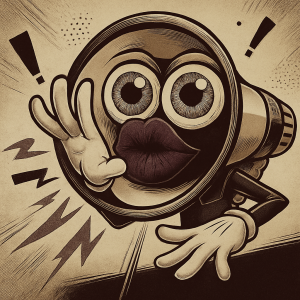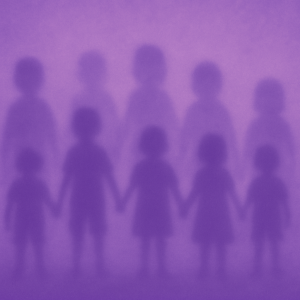Here were are again folks. One TikTok and this is what I am reporting on now:
In Oklahoma, an 11-year-old girl gave birth at home on August 16, 2025. No doctors. No prenatal care. The alleged father? Her 34-year-old stepfather, now facing charges of child sexual abuse after DNA tests confirmed paternity. Her mother and maternal grandmother are also facing charges of neglect and enabling. Authorities described the home as filthy—feces on the floor, no running water, children without clothing.
The six children in that home, including the newborn, have now been placed in what officials call “protective custody”.
Cycles of Trauma
Gabor Maté’s work makes one thing brutally clear: abuse doesn’t materialize out of thin air. Perpetrators are often former victims. That doesn’t excuse it just, very plainly explains the chain. This case is not just about one predator; it’s about untreated, unacknowledged trauma passed down until it detonated in the worst possible way. Unless the cycle is interrupted, it continues.
What “Protective Custody” Really Means
The state’s language is antiseptic. “Protective custody” sounds safe, like an answer. But the foster system in Oklahoma, and everywhere in America, is underfunded, overloaded, and frequently unsafe. We can argue about why this problem exists but first we have to think of the Children.
The reality is that are shuffled, split up, and re-traumatized. Sibling separation alone is devastating. One of the only anchors these kids have is each other, and tearing that apart adds another layer of trauma now inflicted by the very system “designed to help”.
So the question is not “are they in custody?” The question is: “are they actually protected?”
The Myth of Resiliency
Officials and politicians love the word “resilient.” It’s the state’s favorite bedtime story. Kids will “bounce back.” They won’t. They will adapt, because children always adapt, but adaptation is not healing. It comes with costs: physical illness, mental health struggles, difficulty trusting, repeating cycles of abuse.
I Know this. Not just from sited sources, but from lived experience. True resilience can require long-term therapeutic care. But in my opinion in this case, providing immediate and lasting stability, and a system actually invested in repair for the innocent is imperative and change to the current system is beyond overdue.
How Each Child Carries It
– The toddlers (2, 4, 6 years old): They won’t remember in words, but their bodies will remember. Nervous systems wired in chaos, cortisol baked in.
– The older children (9 and 11): They will remember consciously, with images and feelings layered over the body’s memory. They will carry shame and fear that isn’t theirs.
Without intensive intervention, these kids aren’t just “rescued”, they are queued up for the next round of trauma. Often times, that trauma is self-inflicted.
The Systemic Failure
This isn’t a “bad apple” family. It’s a collapsed orchard. Every net that should have caught these children—schools, doctors, social services—either wasn’t funded, wasn’t functional, or didn’t exist in practice. And Oklahoma’s near-total abortion ban means that even if the pregnancy had been detected, there was no legal option for relief.
Muskogee County Assistant District Attorney Janet Hutson told NBC that the case is “one of the most if not the most serious child sexual abuse and neglect cases I have ever prosecuted.” That’s not an achievement, it’s an indictment of every policy decision that led to this.
De-Normalizing Abuse
Abuse of women, children, and marginalized people is normalized in this culture. The outrage lasts a week, the case drags through court, and the systems grind on. To break the cycle we have to strip away that normalization. Abuse is not a “family matter.” It’s a human rights violation.
Protective custody should mean more than relocation. It should mean:
– Sibling unity first and foremost.
– Trauma-informed foster care.
– Therapy for every child, as long as necessary.
– Accountability for a state that pretends resiliency is enough.
Closing Note
The stepfather, mother, and maternal grandmother will likely face prison, and the prison system has its own brutal way of punishing child abusers.
But the true question isn’t whether the perpetrators get justice. It’s whether the children do.
We cannot keep congratulating ourselves for pulling kids out of horror without asking why these situations occur in the first place and not just simply, where we drop them next. And maybe we could demand protective custody be a bit more than a euphemism. It should be the justice all children deserve.
Resources
NCOSE – National Center for Sexual Exploitation https://endsexualexploitation.org/
Rainn – https://rainn.org/
Childrens Rights – https://www.childrensrights.org

Dispatch by Cassandra Speaks w/ G
AI-Enhanced Authorship: Acknowledged

